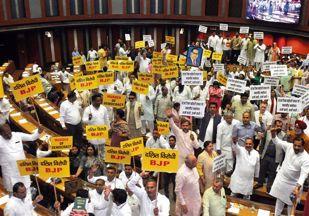Vijay Mohan
Tribune News Service
Chandigarh, July 22
In a decision reinforcing the requirement of independence and impartiality in disciplinary proceedings, the Supreme Court has ruled that a person who had been an inquiry officer cannot subsequently be the prosecutor and judge in the same case.
Observing that disciplinary proceedings are quasi-judicial and the inquiry officer is in the position of an independent adjudicator and is obliged to act fairly and impartially, the SC recorded, “The inquiry officer who has to be independent and not representative of the disciplinary authority, if starts acting in any other capacity and proceeds to act in a manner as if he is interested in eliciting evidence to punish an employee, the principle of bias comes into play.”
While disposing of the matter, the SC upheld an earlier high court order wherein the dismissal orders of members of paramilitary forces were set aside with directions to reinstatement them in service.
The HC, while hearing the appeal of the government filed against Ram Lakhan Sharma, a trooper of the CRPF, and other similarly placed employees had held that the order of dismissal stood vitiated since the inquiry officer himself had acted as a prosecutor which violated the principles of natural justice.
The issue of lack of independence and bias in disciplinary proceedings has been controversial for uniformed forces, with many court cases being pending in this regard. In 2015, a Committee of Experts set up by the government had made wide-ranging suggestions for improvements in the court martial system, observing that all elements of military justice were functioning under the same authority which was an interested party in securing a conviction. The panel had pointed out the lack of “separation of powers” in military justice and that the system did not meet the requirements of Article 14 of International Covenant of Civil and Political Rights which called for independent, impartial and competent courts. The panel had recommended the formation of a high-level study group to put changes into motion.
Though the recommendation for setting up a study group on Military Justice Reform was accepted by the government in 2016 and was to be given effect within 45 days, sources say the group has till date not been constituted.



























